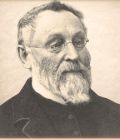COMMON NAME:
BUTTER CUP.
Symptoms
On of our most effective remedies for the bad effects of alcoholic beverages (A.).
Pleurisy or pneumonia from sudden exposure to cold, while over- heated (Aconite, Arnica) (A.).
Shocks through the whole body.
The whole body feels as if beaten (Arnica, Baptisia, Pyrog.).
Burning and stinging pains (Apis.).
Trembling of the limbs after anger (Acid nitricum).
Muscular pains about the margins of shoulder-blades in women of sedentary employment, often burning in small spots (Agaricus, Phosphorus); from needle-work, type-writing, and piano-playing (Act- R.) (A.).
Blister-like eruptions (eczema) in the palms of the hands (N.).
Burning and itching vesicular eruptions (Cantharis, Rhus-t.).
Shingles preceded or followed by intercostal neuralgia (Mezer.); vesicles may have a bluish appearance (A.).
Corns: Sensitive to touch; smart and burn (Salic-Ac.) (A.).
Day-blindness (Conium, Silicea, Stramonium, Sulphur) (A.).
Mist before eyes (Arsenicum, Calcarea, Causticum) (A.).
Pressure and smarting in eyeballs (Phosphorus). (A.).
Delirium tremens (Belladonna, Gelsemium, Hyoscyamus, Stramonium) (A.).
Pleurodynia, with short and oppressive breathing (Bryonia, Phosphorus) (Bl.).
INTERCOSTAL RHEUMATISM; CHEST SORE, BRUISED, WORSE FROM TOUCH, MOTION OR TURNING THE BODY (Bryonia); IN WET, STORMY WEATHER (Rhus- T.) (A.).
Pleurisy dependent upon a sudden exposure to cold while over- headed (Bl.).
PAINS: STITCHES, SHARP, SHOOTING, NEURALGIC, MYALGIC OR RHEUMATIC IN THE WALLS OF THE CHEST, COMING IN PAROXYSMS; EXCITED OR BROUGHT ON BY ATMOSPHERIC CHANGES; INFLAMMATORY DEPENDING UPON SPINAL IRRITATION (Agaricus) (A.).
Hiccough in drunkards (A.).
Spasmodic hiccough (Belladonna, Ignatia, Magnesia phos., Nux vomica, Secale, Veratrum). (A.).
Hiccough with convulsions (Belladonna, Cicuta, Cuprum, Hyoscyamus) (K.).
HICCOUGH AFTER ALCOHOLIC DRINKS (K.).
Fear in the evening; does not want to be alone; fear of ghosts (R.).
Thoughts vanish (R.).
Confusion in the head (Baptisia, Gelsemium) (R.).
ENLARGED SENSATION IN THE HEAD (Belladonna, Gloninum) (K.).
Pain in the forehead and into eyes (Spigelia). (R.).
Ciliary neuralgia (Belladonna, Spigelia) (R.).
Iritis (Merc-C., Silicea, Sulphur) (R.).
Rattling respiration (Ant-T., Cact., Cuprum, Dulcamara, Hepar, Ipecac., Kali-S., Lycopodium, Phosphorus, Pulsatilla, Seneg.) (K.).
AGGRAVATION :
In the morning; in the evening; from change of temperature; from motion; from stretching, during stormy weather; from contact; from alcohol; from breathing; and from change of position.
AMELIORATION :
From rest; from warm application; and in warm weather.
RELATIONSHIP:
Compare: Aconite, Apis., Arnica, Baptisia, Bryonia, Cantharis, Clem., Euphorb., Mezer.
Incompatible with: Staphysagria and Sulph.

